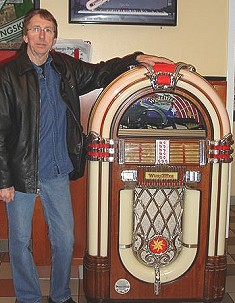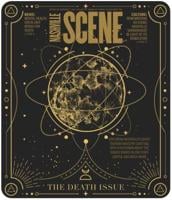
Bobby Emmons
Bobby Emmons, who died in Nashville Feb. 23 at age 72, was one of the most prolific of the Memphis-trained session musicians who came to Nashville in the '70s. A keyboardist whose light touch enhanced the work of country singers, soul shouters and singer-songwriters, Emmons was also an accomplished songwriter himself. In the great Memphis-to-Nashville tradition, Emmons had a career that included a stint with Elvis Presley bassist Bill Black’s band as well as Music City success as co-writer of Waylon Jennings’ 1977 “Luckenbach, Texas (Back to the Basics of Love),” a canonical country song. Emmons always played what the song called for: Trained as an R&B-oriented musician, he knew how to work with a rhythm section, and his songwriting knack grew out of his experiences as a groove-conscious player.
Emmons was born in Corinth, Miss. on Feb. 19, 1943, and got his start playing with Black before making his mark as a Memphis session musician. Working with guitarist, songwriter and producer Chips Moman at Moman’s American Studios, Emmons was part of that studio’s famed rhythm section — a group that included guitarist Reggie Young, bassists Tommy Cogbill and Mike Leech, pianist Bobby Wood and drummer Gene Chrisman. The American Studios rhythm section — sometimes called “The Memphis Boys” — lent their restrained, elegant style to records by such luminaries as Dusty Springfield, Bobby Womack, Merrilee Rush, B. J. Thomas and Presley himself.
Moman, who would go on to co-write “Luckenbach, Texas” with Emmons in Nashville, didn’t produce one of American’s most celebrated releases, 1969‘s Dusty in Memphis, but the band provides the English pop singer with the best backing of her career. With Moman in charge, Emmons played on such late-'60s Womack sides as “Fly Me to the Moon.” You can also hear Emmons and the American band on Merrilee Rush and the Turnabouts’ 1969 full-length Angel of the Morning/That Kind of Woman, which featured two songs co-written by soul tunesmith Dan Penn, along with Chip Taylor’s title track and a version of Joe South’s “Hush” that rocked harder than Deep Purple’s.
Writing with Penn in Memphis in the early '70s, Emmons helped create one of soul music’s greatest songs, “Nobody’s Fool.” It’s a deceptively jaunty tune that rides the line between self-revelation and self-parody. As Penn performs it on his 1973 length of the same name, it comes across like a hybrid of country narrative and soul-music surrealism, but it’s not like anything that was being written in Nashville at the time: “Just love ‘em and leave ‘em, that’s my game/And I’ve got to remain nobody’s love/Nobody’s bread and butter,” Penn sings.
Like Penn and most of the American Studios players, Emmons moved to Nashville in the ‘70s as the Memphis music scene began to decline. Emmons’ Nashville career included session work and songwriting. In addition to Jennings’ “Luckenbach, Texas” and “Women Do Know How to Carry On” Emmons wrote or co-wrote successful songs for George Strait and Tanya Tucker, among many others.
You’ll also find examples of Emmons’ work as songwriter and keyboardist on such lesser-known records as Billy Swan’s Billy Swan and former Joy of Cooking leader Toni Brown’s 1974 full-length, Good for You, Too. Emmons contributed a good-humored rock 'n’ roll tune, “I Just Want to Taste Your Wine,” to Swan, and played keyboards throughout. Meanwhile, his work on Brown’s record demonstrated his ability to support an idiosyncratic, soul-influenced singer-songwriter.
In recent years, Emmons played live dates with Penn, who met Emmons in Memphis in the late '60s. Last December, they appeared on The Late Show With David Letterman, where they performed Penn’s “The Dark End of the Street” and “I’m Your Puppet.”
Penn, who watched the American Studios band play in the '60s, remembers Emmons as a superb musician who was able to add subtle color to any performance. “Bobby was right in there, you know," Penn tells the Scene, "he was a real groove player. That whole [American Studios] band, they could take a poor piece of material, a bad song, and cut it and keep cuttin’ it until they cut it into a groove. A big part of it was Bobby’s groove in the middle there. He was so smooth, he could play a bunch and stay out of the way, too.”
After their start in 2007, Emmons and Penn played about 25 shows together, and Penn remembers the warmth and generosity of his long-time friend. “He was good to be with,” Penn says. “He never had a negative look or word toward anything. He was just the sweetest guy you’ve ever seen.”





